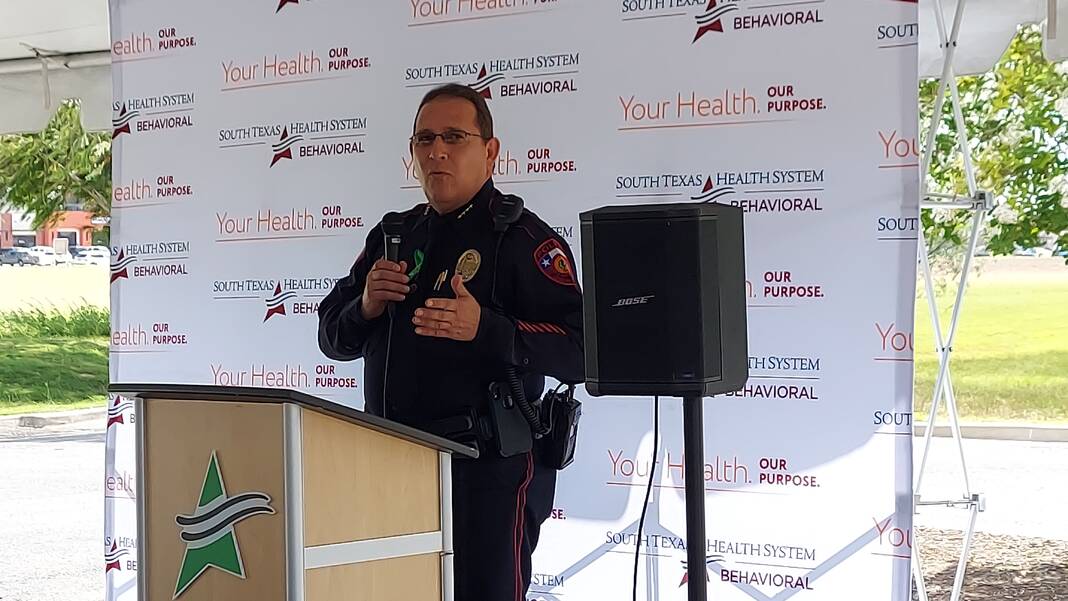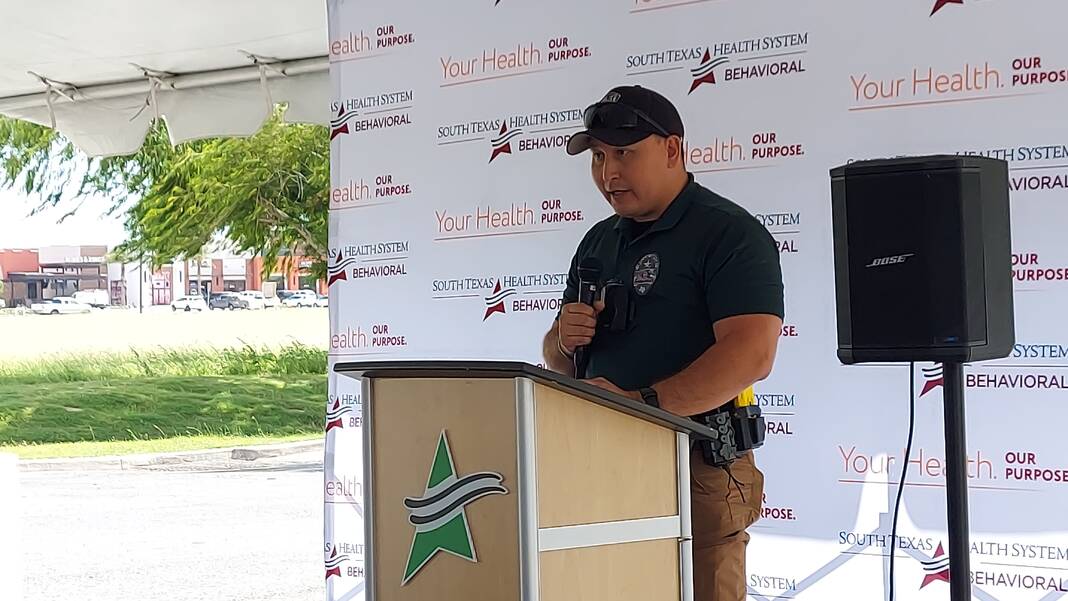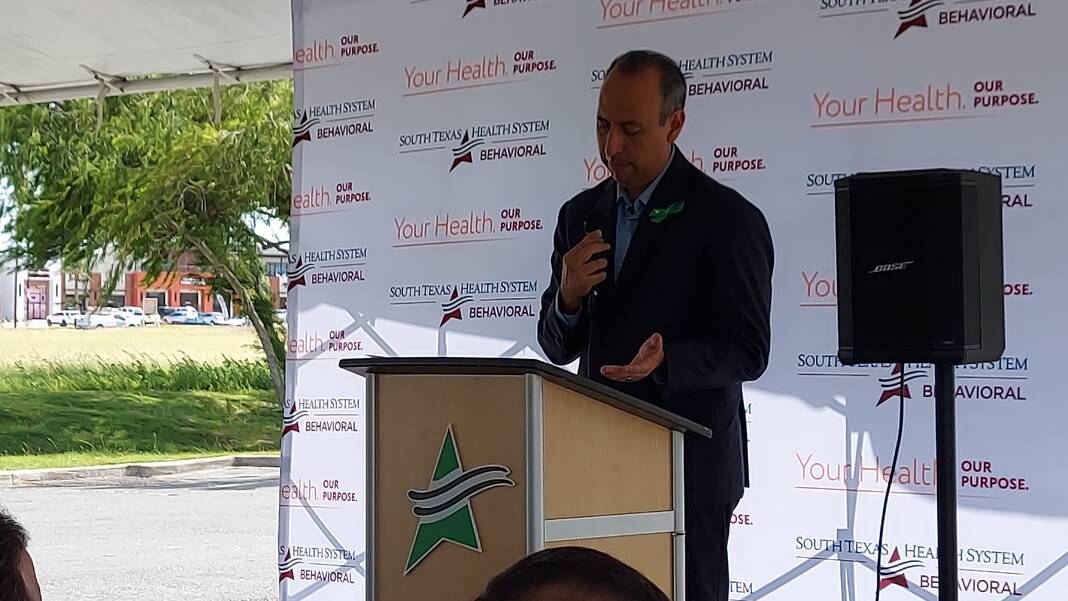|
Only have a minute? Listen instead
Getting your Trinity Audio player ready...
|
EDINBURG — South Texas Health Systems Behavioral came together with city and county officials along with local law enforcement agencies to show support for mental health outside STHS Behavioral on Thursday, where Edinburg Mayor Ramiro Garza Jr. announced a proclamation.
Garza proclaimed May 2022 as National Mental Health Awareness Month in order to end the stigma behind those who suffer from mental health issues.
“I think part of mental illness is a community wide effort,” Garza said. “We have the professionals that are here to deal directly with people needing assistance, but it takes a whole community to come together to at least find and address people that need that assistance and where to take them.”
The mayor thanked STHS for their efforts as well as the multiple law enforcement agencies from across the Rio Grande Valley who attended the event for their efforts in better understanding those who suffer from mental health issues.

Edinburg CISD Police Chief Ricardo Perez Jr. spoke of the training he and many other officers have taken or will take in order to better handle situations where a person may be suffering from a mental health crisis.
“I recently went through the mental health certification … a 48 hour training course understanding mental health and how to deal with it,” Perez said. “Coming to learn and understand about it is very very unique. It takes a very special person, especially in law enforcement, to work with individuals that have mental issues and get them the help that they need.”
Perez added that he’s dedicated to having all 84 police officers under him to receive the same certification training the police chief has gone through in order to have the students at their respective campuses receive the help that they need, should a situation call for it.
To combat the stigma behind mental health issues, Mental Health Officer Cesar Lizcano of the Pharr Police Department shared his personal story struggling with his mental health after surviving COVID-19.
“I fell through depression after being discharged from the hospital back in 2020,” Lizcano said. “I survived COVID-19 but little did I know my recovery was going to be worse. Everyone around me realized something was wrong with me, but despite friends and family recognizing I needed help, I did not.”

Lizcano continued saying he refused help and was afraid of being classified as “weak” by his others but eventually took a leap of faith and sought professional help which is when he learned to accept what was happening.
He went on to say he is grateful for his family and friends for not giving up on him.
Joseph Garcia, Director of Clinical Service for STHS Behavioral, spoke of the stigma against mental health issues and where it may stem from for some people and how one could help combat it.
“Stigma can come from a lot of places,” Garcia said. “Stigma can come from misperception. Stigma can come from miscommunication. Stigma can come from a lack of education and awareness and at the same time, stigma can come from a generalized understanding perhaps of somebody who hasn’t experienced it.”
Garcia added that stigma comes in many forms and the most common manifestation of it is the expectation that somebody should be able to get out of a depressive episode or that anxiety shouldn’t be that bad.
“I think the best way to go about it is to one’s self and to educate one’s family with regards to what a mental health episode means,” Garcia said. “You know, show them, share with them testimonials, other experiences other individuals have had.
“That certainly normalizes many situations … and it opens up the room for conversation, it opens up the room for understanding.”




